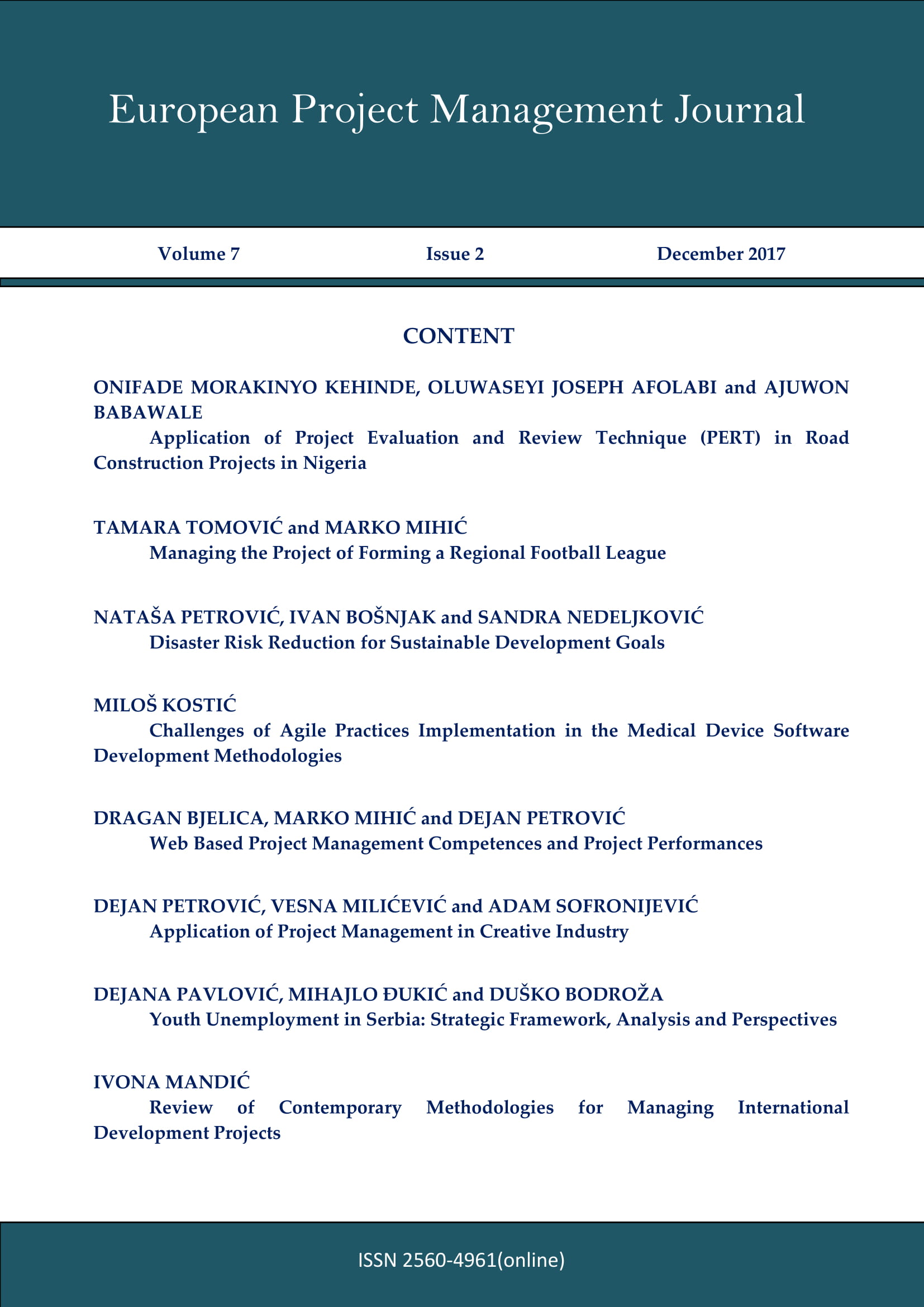REVIEW OF CONTEMPORARY METHODOLOGIES FOR MANAGING INTERNATIONAL DEVELOPMENT PROJECTS
REVIEW OF CONTEMPORARY METHODOLOGIES FOR MANAGING INTERNATIONAL DEVELOPMENT PROJECTS
Author(s): Ivona MandićSubject(s): Supranational / Global Economy, Business Economy / Management
Published by: Udruženje za upravljanje projektima - IPMA Srbija
Keywords: project; methodology; development; cooperation; success
Summary/Abstract: The subject of this paper are project methodologies used by donor organizations when providing development assistance through their projects. Every major donor agency has developed its own methodology, whether it is organized as a cycle that consists of phases or qualitative factor necessary for the project success, accompanied by tools for planning and implementing projects. Some of the largest assistance providers’ methodologies are analyzed - the United States Agency for International Development (USAID), the European Commission (EC) and the German Corporation for International Cooperation (GIZ). By comparing these methodologies some similarities, as well as certain differences, can be noted. Moreover, qualities such as participatory approach, local ownership, capacity building, sustainability and fight against the corruption have arisen and noted as critical for the success of development projects. Once set up, these methodologies and tools are not immutable. On the contrary, knowledge on project management in the field of international development is constantly changing, adapting and upgrading and therefore growing.
Journal: European Project Management Journal
- Issue Year: 7/2017
- Issue No: 2
- Page Range: 74-82
- Page Count: 9
- Language: English

